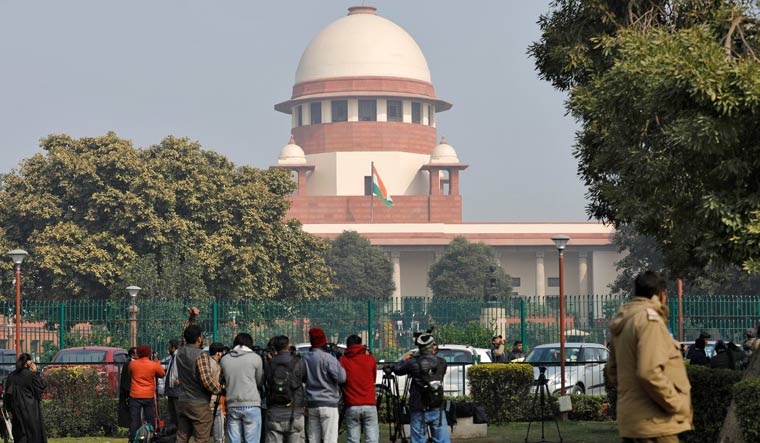The Supreme Court on Wednesday came down heavily on both the telecom companies and the Department of Telecom (DoT) saying there was no question of revisiting its judgment on adjusted gross revenue (AGR). "If reassessment is permitted—it is fraud on this court. We won't spare officials who allowed reassessment of telecom dues," the Supreme Court said as it heard the Centre's plea seeking approval of its formula to allow telecom companies to pay their AGR dues in annual instalments for over 20 years to avoid impact on the economy.
The court also ordered DoT to withdraw its move to allow reassessment saying "self assessment by DoT is sheer violation of our orders, sheer contempt." The plea was heard by a bench comprising Justices Arun Mishra and M.R. Shah.
Justice Arun Mishra emphasised that the apex court cannot permit another round of litigation on the issue of AGR. He asked Solicitor General Tushar Mehta, who appeared for DOT, on how the October 2019 judgment of the Supreme Court can be re-opened. "Do (telecom) companies feel they are more powerful than court?" asked Justice Mishra, adding AGR dues were public money.
Under the formula mooted by the government, telecom companies impacted by the October 24 verdict of the Supreme Court could be allowed to pay the DoT-assessed dues in annual instalments in over 20 years (or less if they so opt), "duly protecting the next present value of the said dues using a discount rate of eight per cent (based on one year marginal cost of lending rate of SBI which is currently 7.75 per cent)".
As per the formula, the interest on the unpaid amount, penalty, and interest on penalty in relation to the past dues as on the date of the judgement will not be levied beyond the date of the said judgement, and the net present value will be protected using the discount rate.
The proposal placed before the SC for consideration also states that telecom firms would continue to be liable for interest, penalty, and interest on penalty for unpaid dues of licence fee and spectrum usage charge which arises prospectively after the October 24, 2019 verdict.
In its report, Credit Suisse observed that the Department of Telecom (DoT) is seeking a 20-year tenure for AGR payment, and said, "while this is incrementally positive for Vodafone Idea as it can ease the immediate cash flow burden on the company, the uncertainty on outstanding dues still prevails."
DoT in its filing has stuck to its original AGR calculation of Rs 53,000 crore and Rs 37,700 crore for Vodafone Idea (VIL) and Bharti Airtel, respectively, which are higher than the estimates by these companies.
On the latest tranche of payment (Rs 3,354 crore) made by VIL on Monday towards its principal dues, Credit Suisse said, while the company may be able to sustain over next two years with the spectrum and AGR payment deferment, its cash flow analysis suggests that business viability is under cloud even at Rs 200 ARPU (and subscriber base of 280 million) once the deferred spectrum payment resumes in fiscal 2023.
"The company will need strong operational improvement along with meaningful equity infusion to sustain in the long term. Our analysis further suggests that VIL would need Average Revenue Per User (ARPU) levels of Rs 145 to meet interest obligation on its debt and ARPU levels of Rs 230 to achieve cash flow breakeven (post FY23)," it said.
The analysis is sensitive to subscriber market share assumption where generous assumption of 280 million has been taken.
"The key variable for sector viability is mobile pricing where there is limited clarity on TRAI's stance on floor pricing," it said.
While telcos, in their response to Telecom Regulatory Authority of India (TRAI) consultation paper have sought introduction of floor tariff in addition to usage charges (data and voice) which helps to raise revenues for telcos in the near term, Competition Commission of India has opposed it, the report said.


